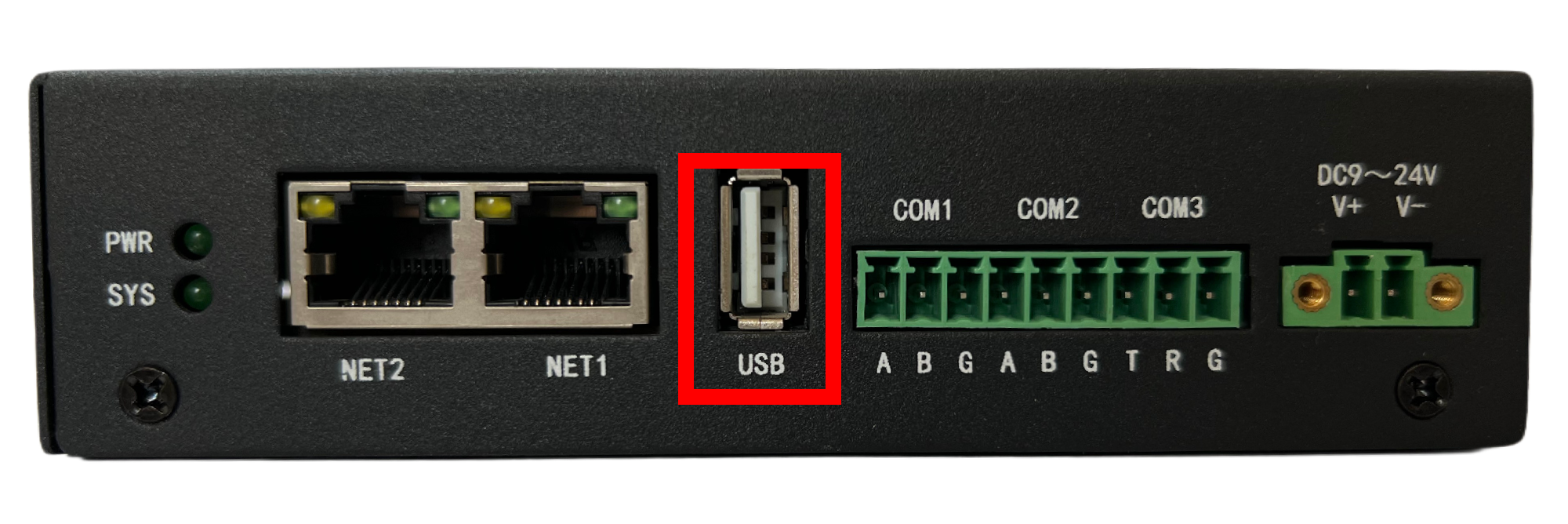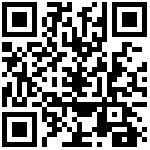USB Host Function
The GW102 gateway provides a one-way USB HOST interface, which is compliant with the USB 2.0 specification. The physical form of the connector is a vertical USB-A type socket. It can be used to connect USB flash disk, USB camera, USB speaker, etc.
The physical interface is shown below:

Usage of USB flash drive
After inserting the USB flash drive, the system prompts a message that new hardware has been found.
usb 2-1.2: new high-speed USB device number 5 using ci_hdrc
usb-storage 2-1.2:1.0: USB Mass Storage device detected
scsi host0: usb-storage 2-1.2:1.0
scsi 0:0:0:0: Direct-Access SD Card Reader 1.00 PQ: 0 ANSI: 6
sd 0:0:0:0: [sda] 30560256 512-byte logical blocks: (15.6 GB/14.6 GiB)
sd 0:0:0:0: [sda] Write Protect is off
sd 0:0:0:0: [sda] No Caching mode page found
sd 0:0:0:0: [sda] Assuming drive cache: write through
sda: sda1
sd 0:0:0:0: [sda] Attached SCSI removable diskIf you don't see the prompt information, you can use the command "dmesg | tail" to view the latest part of the system information, to check if there is any information related to USB devices.
The default system will automatically mount USB devices. By default, it supports FAT, VFAT, EXT2, EXT3 and EXT4 file system formats. The mount command can be used to view the current mount points of the system.
root@gw102d512e4:~# mount
/dev/mmcblk1p3 on / type ext4 (rw,relatime,data=ordered)
devtmpfs on /dev type devtmpfs (rw,relatime,size=89392k,nr_inodes=22348,mode=755)
sysfs on /sys type sysfs (rw,nosuid,nodev,noexec,relatime)
proc on /proc type proc (rw,relatime)
securityfs on /sys/kernel/security type securityfs (rw,nosuid,nodev,noexec,relatime)
tmpfs on /dev/shm type tmpfs (rw,nosuid,nodev)
devpts on /dev/pts type devpts (rw,relatime,gid=5,mode=620,ptmxmode=000)
tmpfs on /run type tmpfs (rw,nosuid,nodev,mode=755)
tmpfs on /sys/fs/cgroup type tmpfs (ro,nosuid,nodev,noexec,mode=755)
cgroup2 on /sys/fs/cgroup/unified type cgroup2 (rw,nosuid,nodev,noexec,relatime,nsdelegate)
cgroup on /sys/fs/cgroup/systemd type cgroup (rw,nosuid,nodev,noexec,relatime,xattr,name=systemd)
cgroup on /sys/fs/cgroup/memory type cgroup (rw,nosuid,nodev,noexec,relatime,memory)
cgroup on /sys/fs/cgroup/devices type cgroup (rw,nosuid,nodev,noexec,relatime,devices)
cgroup on /sys/fs/cgroup/freezer type cgroup (rw,nosuid,nodev,noexec,relatime,freezer)
cgroup on /sys/fs/cgroup/pids type cgroup (rw,nosuid,nodev,noexec,relatime,pids)
mqueue on /dev/mqueue type mqueue (rw,relatime)
tmpfs on /tmp type tmpfs (rw,nosuid,nodev)
debugfs on /sys/kernel/debug type debugfs (rw,relatime)
configfs on /sys/kernel/config type configfs (rw,relatime)
fusectl on /sys/fs/fuse/connections type fusectl (rw,relatime)
tmpfs on /var/volatile type tmpfs (rw,relatime)
/dev/mmcblk1p4 on /run/media/mmcblk1p4 type ext4 (rw,relatime,data=ordered)
/dev/sda1 on /run/media/sda1 type vfat (rw,relatime,gid=6,fmask=0007,dmask=0007,allow_utime=0020,codepage=437,iocharset=iso8859-1,shortname=mixed,errors=remount-ro)It can be seen that the last one is our USB flash drive device. By default, it is mounted under the /run/media/sda1 directory. Thus, operations can be carried out in this directory to achieve reading and writing to the USB flash drive.
最后编辑:SteveChen 更新时间:2025-04-23 00:14
